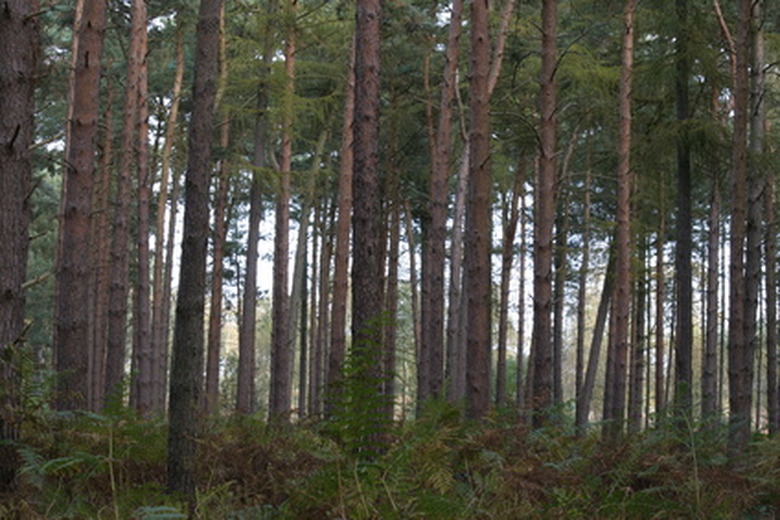The Best Trees To Block Road Noise
Road noise need not disturb your backyard oasis. Trees make beautiful and effective sound barriers and can block the din of urban noise by three to five decibels–even more when mature trees are planted in rows, according to the U.S. Environmental Protection Agency. Trees will also help absorb traffic pollution.
Hardy Evergreen
Hardy Evergreen
The Leyland cypress is the most popular privacy tree in the United States, chosen because it thickens quickly to block noise and grows 3 to 4 feet per year. Reaching a mature height of up to 30 feet, this pyramidal shaped tree stays green year-round, is drought tolerant and thrives in most U.S. states and soils, including sand and clay. Southern magnolias are another evergreen variety that muffles road noise because its lower branches grow to the ground. Towering as high as 80 feet, this beauty also sweetens the summer air with fragrant white blossoms. Other recommended evergreens are the Eastern arborvitae and the cherry laurel. Both are dense, ornamental trees that feature broad spreading, noise-absorbing canopies between 25 and 35 feet wide. The fragrant cherry laurel typically reaches a mature height of 18 feet while the Eastern arborvitae can reach 50 feet tall.
Canopied Juniper
Canopied Juniper
Adding blue-gray color to the landscape, the Rocky Mountain juniper and Chinese juniper make effective sound barriers because they can exceed 30 feet tall and spread to 15 feet wide. The Eastern red cedar, despite its name, is also a juniper that blocks noise with its 20 foot spread and 40 feet of height. A hardy tree that grows in most soils, it is common throughout the United States and is a good choice for those who want to replace disturbing road noise with delightful bird song because this tree is a favorite habitat for those feathered friends.
White Pine
White Pine
One of the most widely planted trees in the United States, the blue-green white pine is called the "tree of great peace" by some Native American tribes. It instills peace and quiet to areas impacted by traffic noise by blocking sound with its thick, straight trunk, cones measuring up to 10 inches and its massive height. One of the fastest growing pines, it is the tallest tree in America's eastern region and can exceed 100 feet in height. The white pine is suited to various climates and terrains, including cool, humid areas, rocky, rugged highlands and marshy wetlands.
Expert Advice
Expert Advice
To successfully block road noise, plant multi-rows of trees instead of a single row according to Raymond Berendt of the National Bureau of Standards in Washington, D.C., in the handbook "Quieting: A Practical Guide to Noise Control." A thick row of tall evergreen trees, then a row of smaller evergreen shrubs and plants is the recommended landscape for combating traffic noise. The height of the trees is another important factor to consider when choosing which ones to use in creating a sound barrier. Each extra 3 feet of height reduces the noise level by 1.5 decibels, according to Leonard Hopper, former president of the American Society of Landscape Architects, in the reference book "Landscape Architectural Graphic Standards."
